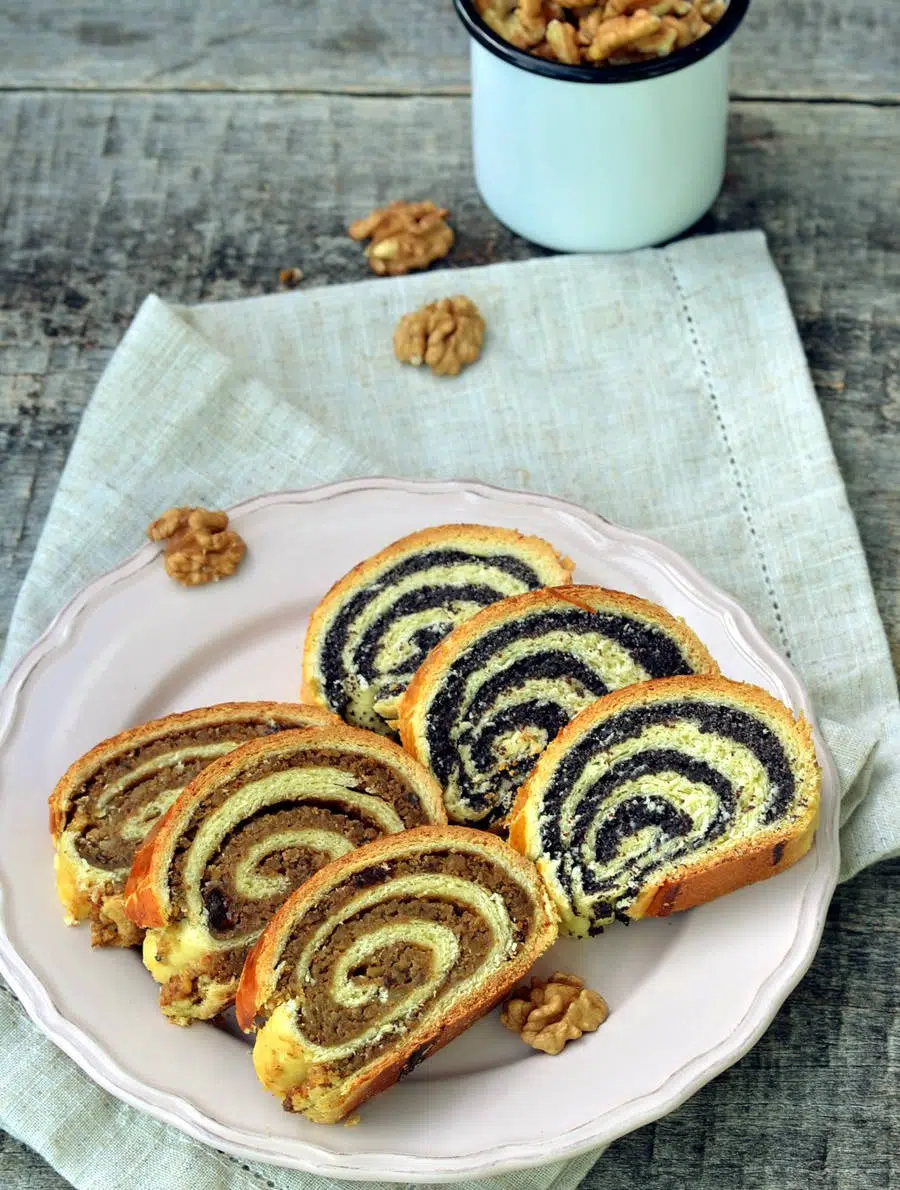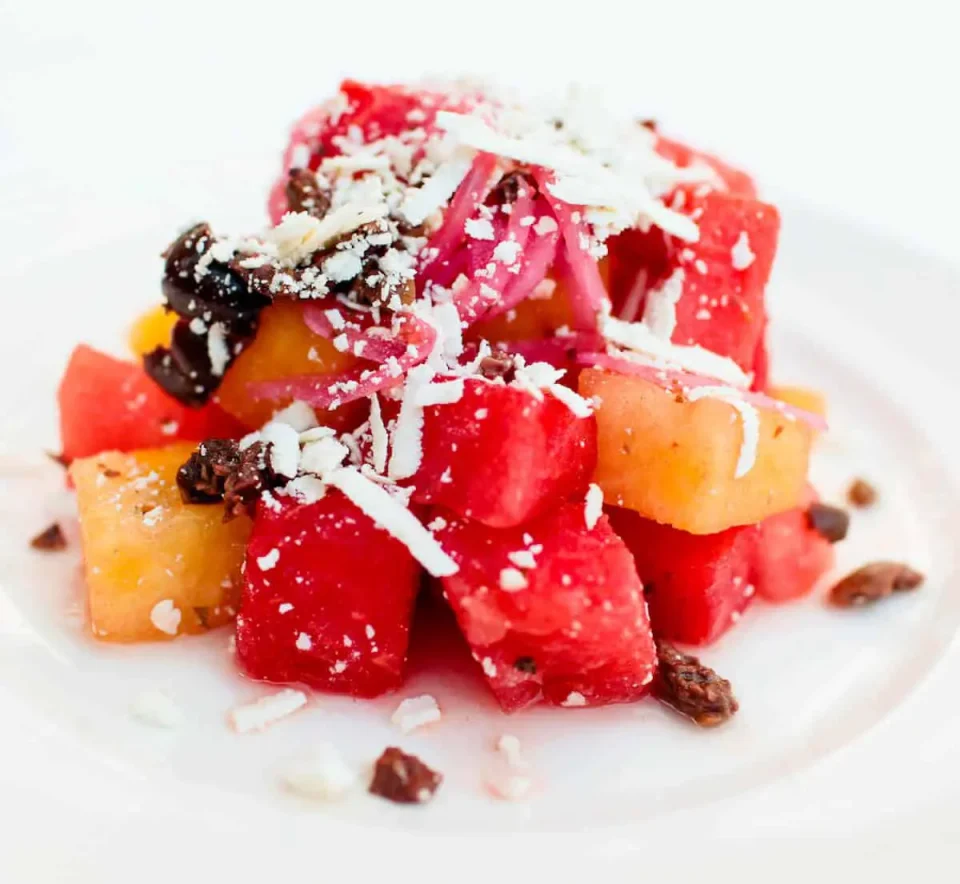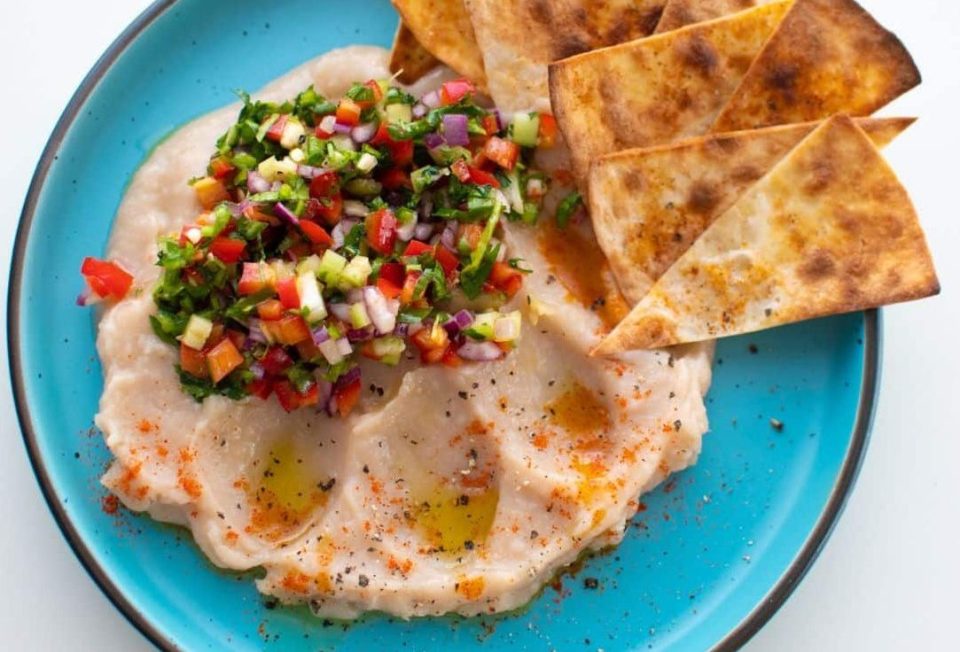If you’re embarking on a school assignment, crossword puzzle, or simply aiming to broaden your culinary knowledge, here’s an extensive compilation of food items that start with the letter W.
1. Wafers
Thin, crunchy, and oh-so-satisfying. These airy biscuits can be dipped in chocolate, layered with cream, crushed as a pie crust, made into ice-cream sandwiches…it’s always more fun when there are wafers around.
2. Waffles
Belgian waffles feature minimal toppings such as powdered sugar or fruit, while American ones embrace syrup, whipped cream, and fruit compote. Swedes generally go for lingonberry jam and a dollop of whipped cream. How do you like them?
3. Wagon Wheels
Introduced in 1948, Wagon Wheels remain a staple in the British snack landscape. Comprising biscuit, marshmallow, and chocolate, they offer a nostalgic taste of childhood for many.
4. Wahoo Fish
Found in warm oceanic waters, wahoo is renowned for its agility and flavor. Its lean, white flesh offers a mild taste, perfect for grilling or broiling. Try some wahoo tacos, topped with mango salsa for a taste of the tropics.
5. Wakame
This unassuming seaweed adds a subtle brininess to miso soup or salads. But dive deeper into wakame’s history, and you’ll find it was once considered a luxury food reserved for royalty in ancient Japan.
6. Waldorf Salad
Say goodbye to mundane salads, Waldorf brings sophistication to the table. It combines crisp apples, crunchy celery, grapes, and walnuts with a creamy dressing. Simple, elegant, completely delicious.
7. Walla Walla Onions
This has to be the only onion with its own dedicated festival, every June, coinciding with peak harvest season. The Walla Walla have a low sulfur content, resulting in a mild, sweet taste that makes them quite palatable, even raw.
8. Walleye Fish
Known colloquially as the “walleyed pike” or “pickerel,” this species thrives in cool, clear lakes and rivers, where it’s sought by fishing enthusiasts for its succulent meat and challenging catch.
9. Walnut
Nature’s brain food packed with omega-3 fatty acids, antioxidants, and vitamins. From salads to baked goods, its rich, earthy flavor adds depth and crunch, while promoting heart health and cognitive function.
10. Walnut Cake

Where sweetness meets simplicity. Having a subtle nuttiness and moist crumb, this dessert speaks to the soul. So take a moment to slow down, savor each bite, and let the worries of the day melt away. Here are a few of our favorite walnut cake recipes: walnut ricotta cake, beigli, and walnut caramel cake.
11. Walnut Cookies
Traditional Korean walnut pastries originating from Cheonan. Crispy walnut-shaped shells filled with sweet red bean paste or other fillings. Symbolic of good fortune, they’re cherished treats for festive occasions.
12. Wampee Fruit
In Cantonese, wampee (Wong Pei) means “yellow skin,” reflecting its appearance. It prefers warm, humid climates such as Thailand and Vietnam, and the taste can be described as a mix of grapefruit and lychee.
13. Warabi Mochi
This Japanese delicacy originates from the Kansai region and is traditionally enjoyed during the summer months. Despite its name, it doesn’t contain mochi rice; instead, it’s crafted from bracken starch, giving it a unique texture.
14. Wasabi
Not for the faint of heart! This potent green paste packs a punch with its sinus-tingling heat and earthy aroma. Use sparingly to add a burst of flavor to sushi, noodles, or grilled meats.
15. Water
This, of course, is the elixir of life. It is essential for hydration, digestion, and overall well-being. With zero calories and endless benefits, staying hydrated with this clear, refreshing liquid is key to maintaining optimal health. For some trivia, check out this list of the most expensive bottles of water in the world.
16. Watercress
Watercress is one of the oldest known leaf vegetables consumed by humans, dating back to ancient times. It’s crispy, peppery, and a whole lot of fun in sandwiches, soups, and salads.
17. Watermelon

A symbol of summer fun and relaxation, with its bright colors and sweet, juicy flesh. Whether enjoyed in slices, salads, or smoothies, it’s an awesome reminder to savor the simple pleasures of life.
18. Wattleseed
Wattleseeds come from the pods of various Acacia species native to Australia, and have a nutty, roasted flavor with hints of chocolate and coffee. For a long time used mainly by Indigenous people, they’re now gaining popularity in modern gastronomy.
19. Wax Apples
Also known as “water apples” or “rose apples,” these are often used in Asian cuisines for their crunchiness, delicate floral flavor and subtle sweetness. Enjoy them fresh in salads, desserts, or simply as a snack.
20. Waxy Potatoes
Similar to fingerlings and new potatoes, this variety contains less starch and more moisture. It makes them perfect for dishes that require a tender bite and creamy consistency: salads, gratins, or soups.
21. Weakfish
At times referred to as “sea trout” for their resemblance to freshwater trout, weakfish belong to the drum family. They’re characterized by elongated bodies and distinct coloring, despite not being true trout.
22. Weetabix
“Have You Had Your Weetabix?” – An iconic slogan that has become synonymous with the brand, emphasizing the importance of incorporating these cereal biscuits into daily breakfast routines. Great for sustained energy and vitality.
23. Welsh Rarebit
Essentially, this is melted cheese and savory seasonings atop toasted bread. Sometimes referred to as “Welsh rabbit,” a playful nod to its Welsh origins and the linguistic evolution of its name (having no rabbit in it whatsoever).
24. Wheat
You can honestly call it “a cornerstone of our civilization”, feeding humanity for thousands of years. What would we do without bread, pasta, cereal, flour, backed goods, beers, and so many more essential foods?
25. Wheatgrass
This is the young wheat shoots, harvested 7-10 days after germination when they are at peak nutritional potency. Wheatgrass has gained popularity thanks to the research of nutritionist Ann Wigmore, who championed their health benefits (supposedly: detoxification, immunity, gut health, etc.).
26. Whelk
These marine gastropods are defined by their spiraled shells, which vary in color and pattern depending on the species and habitat. The meat is firm yet tender, and commonly used in dishes from Asian stir-fries to European seafood dishes. Here’s more information on whelks.
27. Whipped Cream

For perfect whipped cream, chill heavy cream, beat with cold utensils, add sweetener and flavorings, then whip until stiff peaks form. Use immediately atop desserts or beverages, or refrigerate for later enjoyment.
28. Whiskey
Born from ancient alchemy, its name comes from the Gaelic “uisge beatha,” meaning “water of life.” Initially a medicinal elixir for monks, it’s now one of the most popular spirits, with around 200 million cases sold worldwide annually.
29. White Asparagus
White asparagus undergoes a unique growing process where farmers mound soil over the spears to prevent photosynthesis. This results in a creamy, ivory-hued delicacy, perfect for gratins or alongside poached eggs. Here’s a quick guide on how to cook white asparagus.
30. White Beans

From Tuscan soups to classic chili, white beans add a hearty touch to countless recipes. They are sometimes known as navy beans, a moniker earned from their use by the U.S. Navy since the 19th century.
31. White Beech Mushroom
Cooking unlocks the full potential of these mushrooms as they shed their initial bitterness for a nuanced, earthy-nutty flavor. As versatile as other fungal counterparts, they enrich stir-fries, soups, and stews with a subtle yet distinct taste.
32. White Button Mushroom
Also known as champignon mushrooms, white button mushrooms are among the most cultivated varieties globally. They represent the youngest stage of the Agaricus bisporus species, evolving into crimini (baby bella) and eventually portobello mushrooms.
33. White Chocolate
White chocolate was greeted with skepticism when it was first introduced, with some dismissing it as not real chocolate due to the absence of cocoa solids. Its creation marked a departure from tradition, relying on cocoa butter and milk solids instead.
34. White Currants
White currants, though less common than red or black varieties, boast a similar tartness. High in antioxidants, they’re enjoyed in jams, sauces, and as a fresh garnish.
35. White Eggplant
This is the lesser-known variety of eggplant. It shares the same attributes as its purple counterparts but has a paler skin and slightly milder flavor. It’s just as nice in eggplant parmesan, ratatouille or simply grilled.
36. White Figs
White figs are known for their honeyed sweetness and are best enjoyed fresh. They complement artisanal cheeses and may appear in gourmet salads.
37. White Fish

A wide category of freshwater fish species like Lake Whitefish, Cisco or cod, these prized for their mild flavor and firm texture. Commonly caught in cold northern waters, they’re often prepared by smoking or grilling to highlight their natural taste.
38. White Russian
The White Russian cocktail surged in popularity during the 1970s and became iconic after its association with the film ‘The Big Lebowski.’ Loved for its simplicity—vodka, coffee liqueur, and cream—it remains a timeless favorite.
39. White Wine
Ranging from crisp and dry to sweet and fruity, white wines come in a wide array of flavors and styles. Varieties such as Chardonnay, Sauvignon Blanc, and Riesling pair beautifully with seafood, salads, and light pasta dishes.
40. Whiting
Whiting encompasses a range of European and North American species. The Silver hake, for example, is prevalent along the Atlantic coastline and can make some delicious fish tacos.
41. Whole Wheat Bread
Not all bread is created equal. Whole wheat bread stands out for its high fiber content, which aids in digestion and promotes heart health. As well as tasty, it makes for a more wholesome diet.
42. Whoopie Pie
Whoopie pie settles the age-old debate about cake or cookie by offering the best of both worlds. Soft, moist, and with a heavenly creamy filling, you’ll have to thank the friendly rivalry of Pennsylvania and Maine for this creation.
43. Wiener Schnitzel
This is an Austrian classic, made with thinly pounded veal, coated in breadcrumbs, and fried until golden. Originating from Vienna (Wiener means Viennese), it’s traditionally served with lemon wedges for a zingy kick.
44. Wild Rice
Wild rice isn’t technically rice. It is actually the seed of aquatic grasses found in freshwater marshes and lakes. Native American tribes harvested and enjoyed it for centuries before it become popular everywhere else.
45. Williams Pear
Harvested in late summer to early autumn, Williams pears (Bartlett as they are known in North America) are at their peak ripeness when their skin turns from green to yellow. Look for pears with a slight give at the stem end for optimal flavor and texture.
46. Windmill Cookies
Crispy cookies spiced with cinnamon, nutmeg, and cloves, often shaped like windmills, pay homage to the Netherlands’ iconic landscape. Enjoy their warm, aromatic flavors with a cup of tea or coffee.
47. Wine
Wine is more than just a drink—it’s a reflection of terroir, climate, and winemaking techniques. From bold Cabernets to crisp Chardonnays, each bottle tells a story of the land it comes from and the hands that crafted it.
48. Wine cake
Wine cake: because why choose between dessert and drinks when you can have both in a single bite? It’s the ultimate multitasking treat for those who refuse to compromise on flavor—or fun!
49. Wineberry
With their vibrant hue and sharp taste, wineberries are actually an invasive species in North America. Despite this, they’re prized for their intense flavor, often used in preserves and pies.
50. Winged Beans
You have to try winged beans! These tropical legumes not only add a pop of color to your plate with their vibrant pods but also provide a healthy dose of vitamins and minerals. Delicious and nutritious!
51. Winter Melon
More than just a seasonal delight, the winter melon has dense flesh, akin to cucumbers, that absorbs flavors like a sponge. From savory stews to refreshing drinks, its adaptability knows no bounds.
52. Winter Squash
Not just for savory dishes! Pleasantly sweet when roasted, varieties such as kabocha and sugar pumpkin shine in desserts. Their velvety flesh adds moisture and depth to pies, muffins, and cakes.
53. Witlof
Witlof, or Belgian endive, boasts a bitter flavor and crisp texture, ideal for salads or appetizers. Fun fact: It’s grown in darkness to prevent chlorophyll formation, resulting in its pale color and mild taste.
54. Wolfberry
Hailed as a superfood, these are loaded with essential amino acids and B vitamins, crucial for metabolism and energy production. With their tangy-sweet flavor, they make a delicious addition to yogurt bowls, oatmeal, and baked goods.
55. Wolffish
This is a predator of the deep, with a reputation for its impressive jaws, eel-like body, and sharp teeth. Surprisingly, its flesh is tender and flavorful, resembling that of lobster.
56. Wonton
Bite-sized dumplings filled with savory fillings like pork or shrimp. They’re boiled, steamed, or fried and often enjoyed with dipping sauces. Wontons are believed to have been introduced to the West by Chinese immigrants in the 19th century.
57. Wonton Soup
A bowl of comfort, featuring delicate wontons served in a fragrant broth infused with aromatic spices. Served piping hot with a garnish of green onions, it’s like a warm hug.
58. Wood Apple
Known for its tough exterior and fragrant pulp, this is a staple in South Asian cuisine. The tangy-sweet flavor, resembling tamarind, adds character to juices, preserves, and sauces.
59. Worcestershire Sauce
Besides having a tricky pronunciation (WUSS-ter-sheer), the sauce also has a surprising beginning. Developed by chemists John Lea and William Perrins in the 1830s, its recipe remained a closely guarded secret for years, adding to its allure.
60. Wrasse
These colorful reef-dwellers are found in oceans worldwide, some species acting as cleaner fish, while others are fierce predators. Their presence is crucial for maintaining balance in reef ecosystems.
61. Wurst Sausage

Essential in German cuisine, varieties include bratwurst and knockwurst, seasoned with herbs and spices. Grilled or pan-fried, they’re commonly served with sauerkraut and mustard. Bit of trivia: the world’s longest sausage was made in Romania, measuring over 68 kilometers! Oktoberfest in Munich serves millions of sausages each year!
62. Whey
A nutritious liquid separated from milk during cheese-making, whey is rich in protein, vitamins, and minerals. It’s widely used in fitness supplements, protein bars, and smoothies, promoting muscle growth and recovery.
63. Wensleydale cheese
From England’s Yorkshire Dales, Wensleydale is famed for its crumbly texture and gentle tang. With hints of honey and a creamy finish, it was made by Cistercian monks in the 12th century and became immensely popular after Queen Victoria became a fan. (/animated characters Wallace and Gromit declared it their favorite.)
64. Water spinach
A staple in Asian cuisine, water spinach, or kangkong, is known for its tender leaves and crunchy stems. Rich in vitamins and minerals, it’s often stir-fried or sautéed with garlic and chili for a flavorful dish.
Related: Foods Starting with Q
Related: Foods Starting with R
Related: Foods Starting with S
Related: Foods Starting with X
Related: Foods Starting with Y
Related: Foods Starting with Z
The post 64 Wonderful Foods Starting with W appeared first on Chef's Pencil.
from Chef's Pencil https://ift.tt/F0I2Ur6
via https://chefsspenncil.blogspot.com

No comments:
Post a Comment